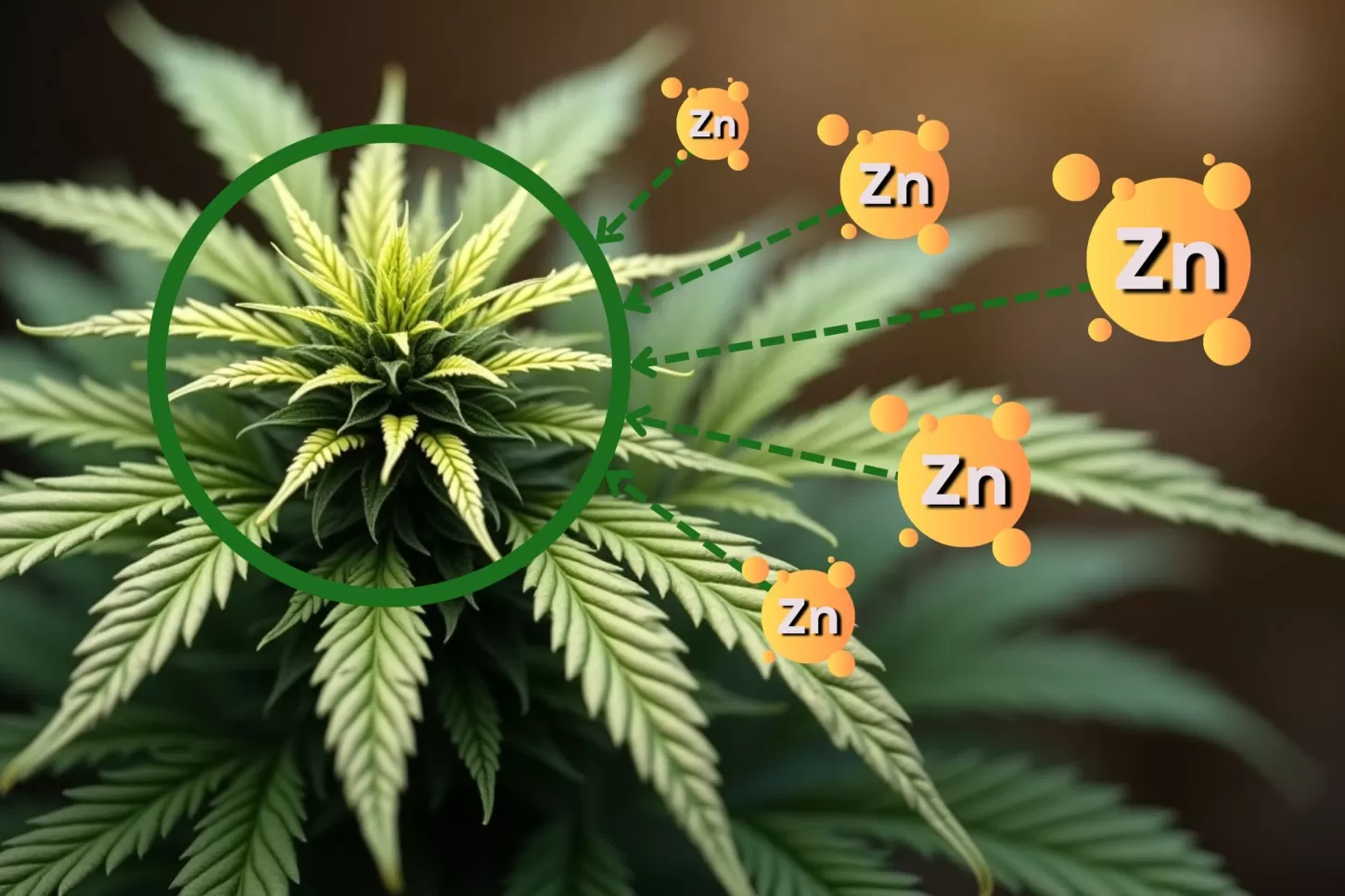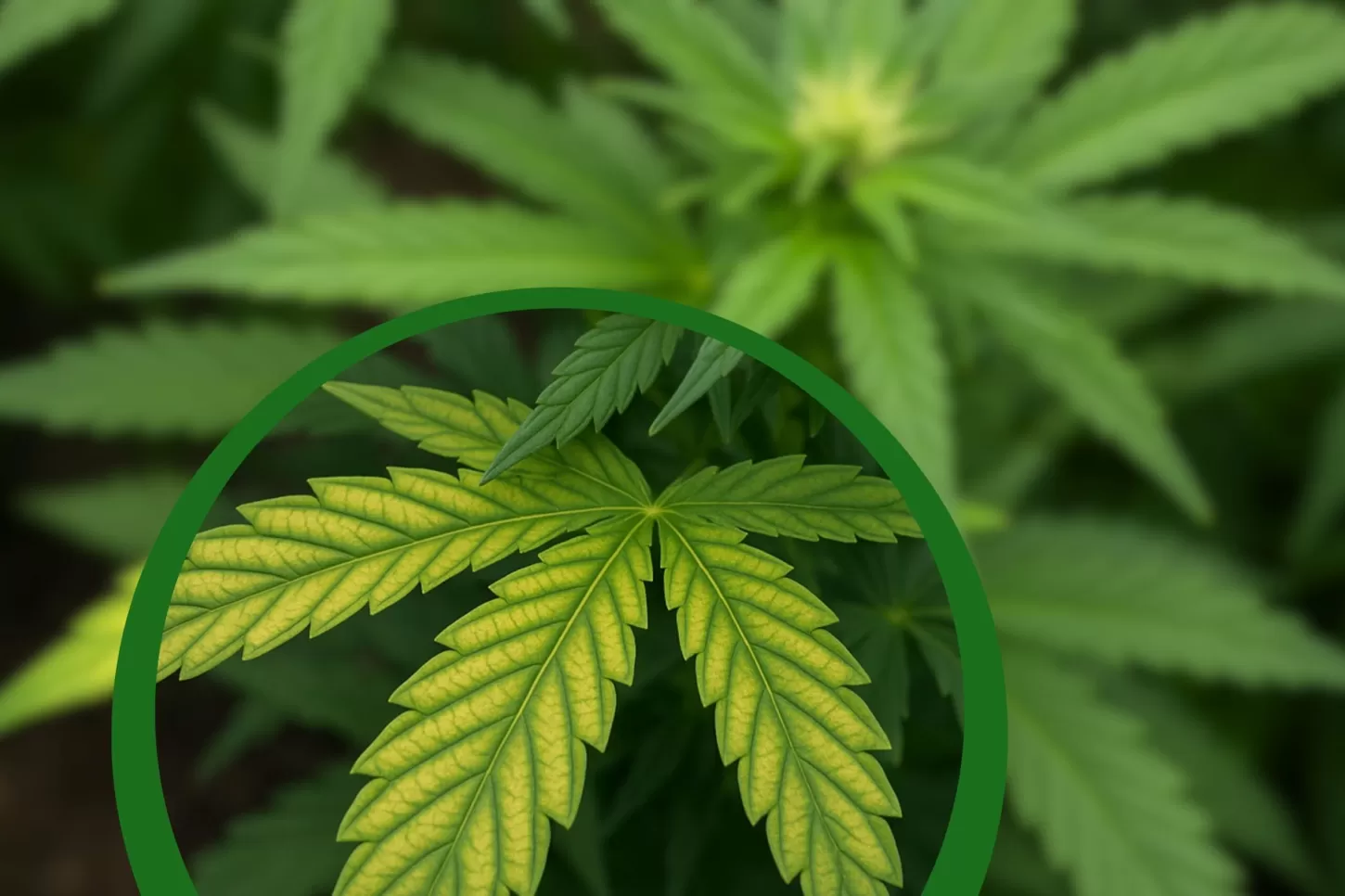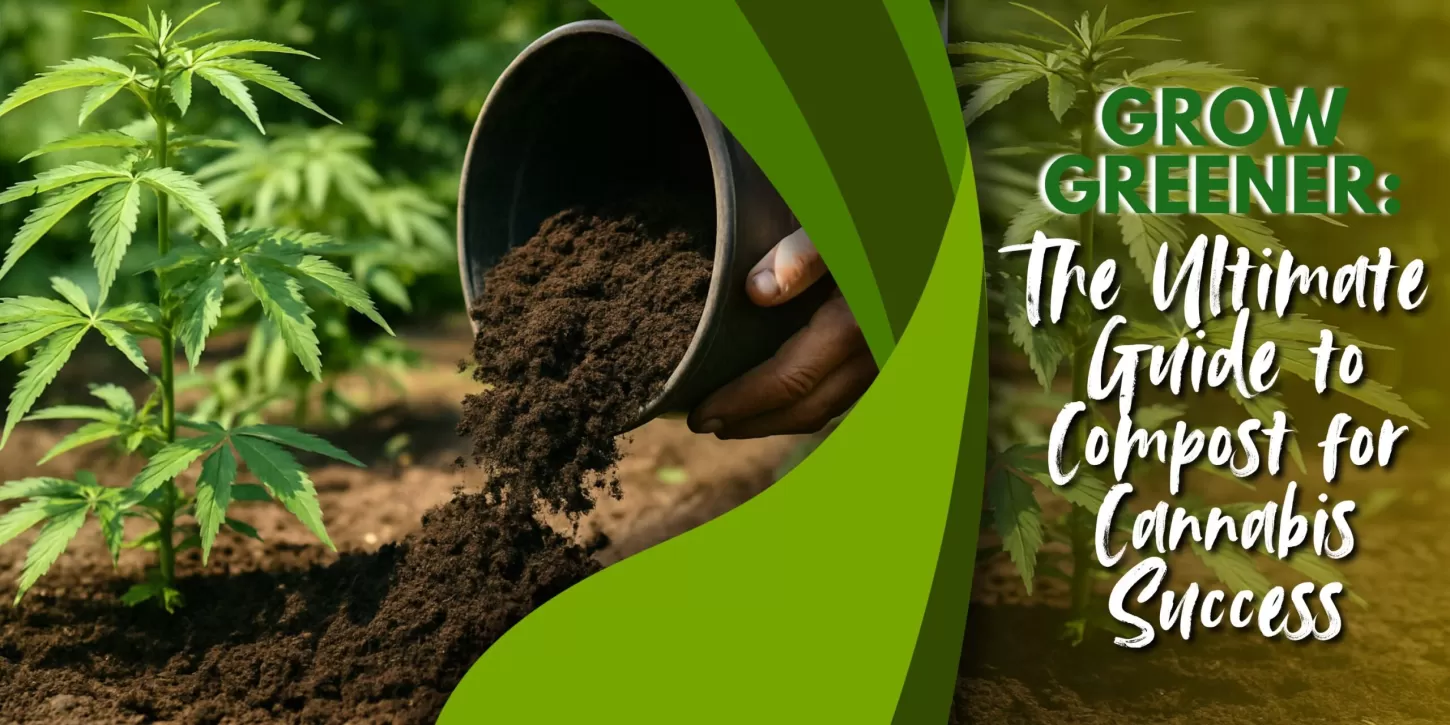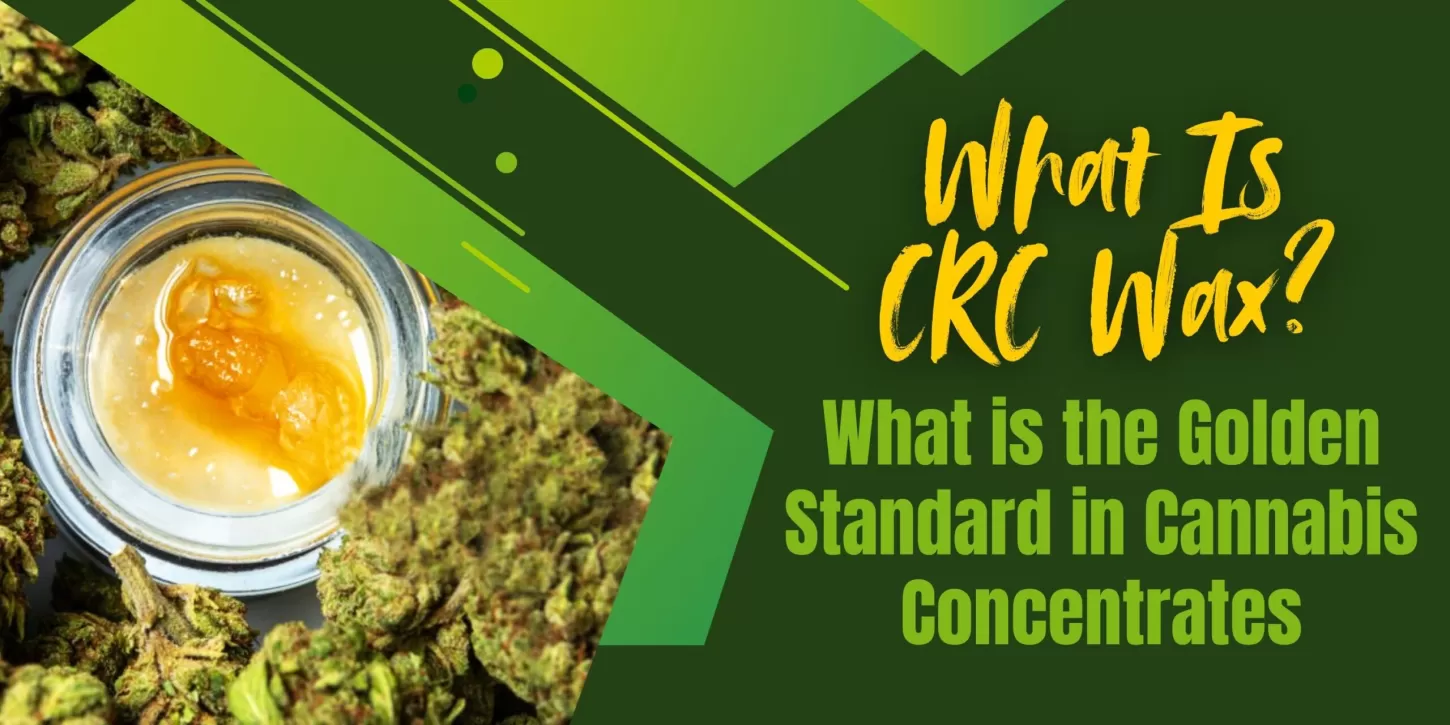Home / Cannabis Zinc Deficiency: Causes, Symptoms, and Effective Solutions

As an essential micronutrient, zinc is also a vital part of cannabis plant growth and development. However, a lack of zinc can result in cannabis zinc deficiency, which can hurt the overall health and yields of the plant. This deficit is among the most prevalent micronutrient excessively in Cannabis production, and with initial not being an issue, this could greatly affect the final product quality. Cannabis growers who wish to maximize plant potential must learn about the causes, symptoms, and solutions to cannabis zinc deficiency.

Zinc is an essential element for enzyme function, protein synthesis, and chlorophyll synthesis in plants. It also plays a critical role in the production of a growth hormone in plants called auxins which are responsible for controlling how much a cell elongates or does cell division. Cannabis plants with a zinc deficiency will not grow correctly, and some signs indicate that something is wrong with the plant.

Several factors contribute to zinc deficiency in weed plants. Some of the most common causes include:
Incorrect pH levels are the main cause of zinc-deficiency cannabis growers experience. Zinc is less available in soils or hydroponic mediums that are too alkaline (greater than pH 7.0). The pH of soil for optimal zinc uptake is around 6.05 in soil and 5.5 to 6.0 in hydroponics.
Zinc deficiency may occur when excess phosphorus impedes zinc absorption. Commercial fertilizers often have higher levels of phosphorus and can compete with zinc for root uptake.
If nutrients are lacking or the soil has been overworked, there may not be enough zinc in the soil. Compacted or waterlogged soil also can limit root access to available zinc.
Plant genetics are also considered because some cannabis strains are more susceptible to plant zinc deficiency than others. Certain high-yielding or quick-growing strains may consider more zinc than others.
Identifying early the symptoms of Zinc deficiency in plants can help in reducing the serious damage. Common symptoms include:
If your cannabis plants show signs of zinc deficiency, swift action can help restore their health. Here’s how to fix zinc deficiency in plants effectively:
This is why testing your growing medium levels and taking appropriate corrective action for pH levels matters so much, as pH imbalance is the primary cause of zinc deficiency. However, keeping the soil slightly acidic (with a pH of 6.0–6.5) and hydroponics (5.5–6.0) can increase the availability of zinc.
Adding a zinc-rich fertilizer or foliar spray can quickly address the deficiency. Options include:
If phosphorus levels are too high, reducing phosphorus-heavy fertilizers can improve zinc absorption.
Adding organic matter such as compost, manure, or biochar to soil can improve root health and the availability of micronutrients.
You don’t want to overwater, since too much water can cause nutrient lockout and contribute to poor root systems.
Prevention is always better than cure. To avoid zinc deficiency in cannabis, follow these best practices:
Zinc is essential to cannabis growth as it aids in enzyme activity, protein synthesis, and overall metabolism. And without enough zinc, plants don’t grow right, resulting in lower yields and less potency. By knowing how essential zinc and weed are to plants in combination with each other, growers can make the environment allow them to grow optimally and have thriving yields.
Symptoms of zinc deficiency in cannabis can pose a major threat to the growth, health, and yield of plants. Growers can learn how to identify, protect against, and correct this issue by understanding the causes, symptoms, and solutions for this common condition. From adjusting pH, to supplementing with zinc, to making improvements to soil conditions, resolving plant zinc deficiency will set the stage for a thriving cannabis garden and high-quality buds. Monitor nutrient levels carefully, and your cannabis crop will thrive, producing plenty of additions for humans, and, as a bonus, its potential for human consumption.
1. How can I tell if my cannabis plant has a zinc deficiency?
Look for symptoms like yellowing between leaf veins, deformed new leaves, slow growth, and stunted bud development. Testing soil pH and nutrient levels can confirm the deficiency.
2. Can zinc deficiency be mistaken for other nutrient deficiencies?
Yes, zinc deficiency symptoms can resemble iron or manganese deficiencies. However, zinc deficiency typically affects new growth first, while iron and manganese deficiencies impact older leaves.
3. What is the fastest way to fix zinc deficiency in weed plants?
Using a foliar spray with chelated zinc or zinc sulfate provides a quick remedy. Adjusting soil pH to the optimal range also improves zinc uptake.
4. Can too much zinc harm cannabis plants?
Yes, excessive zinc can be toxic to cannabis plants, causing nutrient imbalances and stunted growth. Always apply zinc supplements according to recommended dosages.
5. How often should I check for nutrient deficiencies in cannabis?
Regular monitoring is key. Check pH levels, nutrient concentrations, and plant health weekly to catch and address deficiencies early.









Explore a world of possibilities with VancouverSeedBank.ca. Your premier source for premium cannabis seeds, delivering quality, variety, and discreet shipping for a seamless growing experience.


Are You 18 Or Over?
By selecting “Continue”, you confirm that you are at least 18 years of age and legally permitted to access cannabis related content in your region.
By using Vancouverseedbank.ca, you agree to our terms of service.